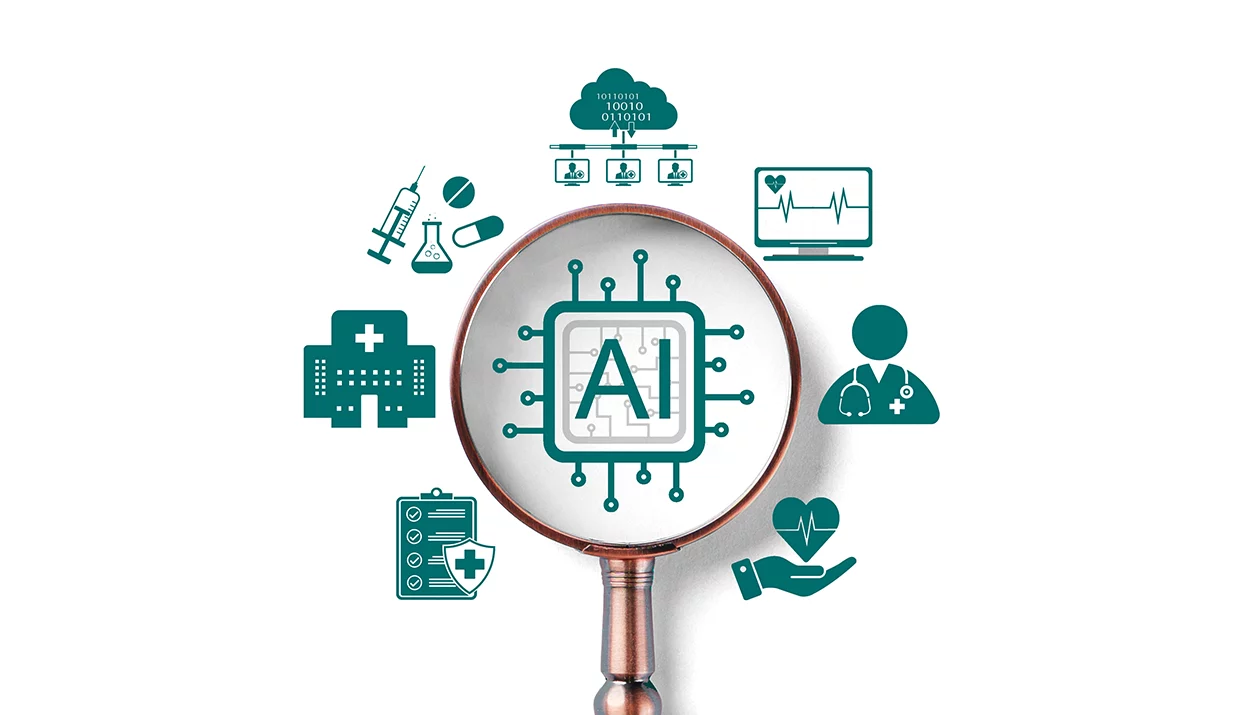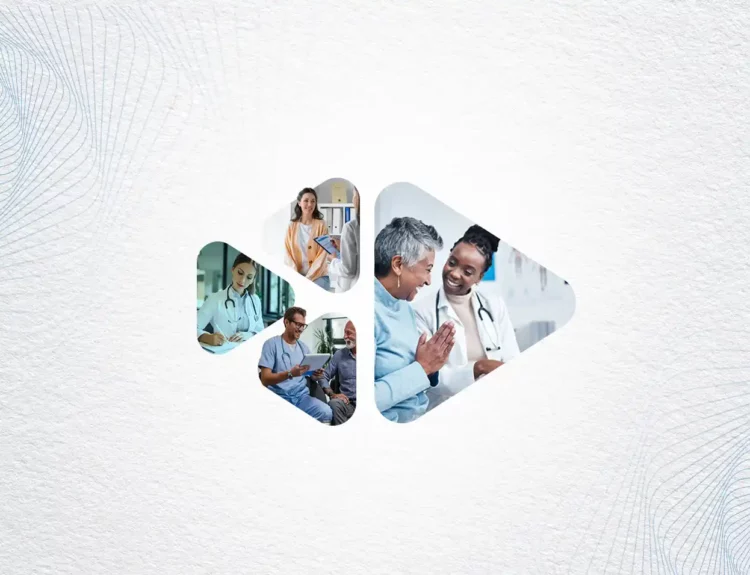For years, the healthcare industry has grappled with the same persistent challenge: how to truly connect with healthcare professionals (HCPs) in meaningful, efficient, and respectful ways. Despite an explosion of digital platforms and tools, the industry is just communicating more, not necessarily communicating better.
The way it engages healthcare professionals (HCPs) is long overdue for a rethink. Over the past decade, the industry has flooded doctors with emails, webinars, detail aids, rep visits, conference invites, app nudges, you name it. This has resulted in digital fatigue, fragmented conversations, and a growing disconnect between what brands push out and what HCPs need.
But thanks to AI, the healthcare industry has a chance to do better and much better.
In the recent webinar co-hosted by Camilla Hasler (Borderless Access), Sales Director, Panel Business, UK and EU, and Olympia Mantsios (Dentsu Health), Global VP of Data and Analytics, Dentsu Health, the two seasoned leaders explored how AI is not just another tech trend but a strategic differentiator in healthcare market research and HCP engagement.
Here’s what stood out and why decision makers should pay attention.
The Problem: An Industry Out of Sync
The webinar addressed a key challenge: the latest industry reports reveal 36% of healthcare practices report dissatisfaction with their current communication technology. Meanwhile, 95% of providers recognize a strong correlation between communication quality and patient satisfaction. There’s a gap and it’s growing.
Healthcare professionals are overwhelmed. Information overload, time constraints, marketing fatigue, and regulatory pressures (especially post-GDPR) have created an engagement bottleneck; messages miss the mark, campaigns fall flat, and ROI suffers.
The traditional engagement journey, once linear and driven by physician judgment alone, has morphed into a tangled web of touchpoints, stakeholders, and external variables—from socioeconomic factors to digital behavior patterns.
Beyond Automation and Toward Actionable Intelligence
It is in light of all the pertinent challenges of HCP engagement that artificial intelligence earns its seat at the table—not just to automate tasks, but to make engagement smarter, faster, and far more personal.
Hasler and Manos laid out how AI is improving every step of healthcare market research and outreach:
- Real-time data collection: Systems are analyzing millions of patient records on the fly, flagging anomalies, and identifying opportunities.
- Precision segmentation: AI identifies actionable audience segments at scale—no more generic outreach.
- Trend prediction: ML spots emerging patterns invisible to the human eye, from prescription behavior to peer influence networks.
- Channel optimization: Behavioral data is used to determine not just what message to send, but when and where to send it for maximum impact.
In short: AI is turning guesswork into science indeed.
Behavioral Targeting: When, Where, and Why It Matters
One of the most compelling takeaways from the webinar was a real-world case study that demonstrated the power of AI-enhanced behavioral targeting in healthcare industry market research.
In a recently executed campaign, Borderless Access tested three delivery methods for the same message:
- Email only → 16% response rate
- Mobile app only → 22%
- AI-optimized cross-channel + timing → 38%
This led to a 140% improvement.
Why? Because AI matched not just the content to the audience, but also the delivery method and the moment. Timing and channel preferences—powered by behavioral analytics—became the core engagement levers. This kind of nuanced optimization simply isn’t possible with conventional outreach strategies.
Co-Creation, Not Just Collection
Too often, HCPs are treated as data points. But that’s a missed opportunity.
A key point raised was the value of co-creating insights with HCPs—via advisory boards, workshops, and community-driven platforms. This not only leads to richer data but builds trust and long-term engagement. It turns passive subjects into active collaborators.
Hasler echoed this, noting that feedback loops, both explicit (surveys, interviews) and behavioral (panel activity, repeat participation), are essential to maintaining engagement integrity over time.
HCPs aren’t just passive data sources. They’re collaborators. Building trust means involving them in the research lifecycle—from ideation to execution.
Borderless Access’s approach to digital communities highlights this shift. By engaging HCPs through niche healthcare panels, advisory boards, and peer-led forums, they generate more relevant insights and foster long-term relationships. Feedback loops (both explicit and behavioral) help calibrate engagement strategies over time.
Watch the full webinar to learn more about our global healthcare panels are empowering pharma brands to create lasting connections with HCPs worldwide.
AI Ethics and Compliance: What You Can’t Ignore in Healthcare Market Research
Healthcare is a minefield of ethical and legal constraints—HIPAA, GDPR, and countless local regulations. The presenters didn’t shy away from this.
Their stance was clear: AI must be transparent, secure, and used with consent. That means anonymized data, strict access controls, and ensuring that AI supports—rather than overrides—HCP autonomy.
“AI doesn’t replace human judgment,” Manos emphasized. “It enhances it.” The models uncover patterns and provide directional insight, but human teams must still interpret, validate, and act.
It’s Time for Connection Over Communication
Based on the focal discussions during the webinar, it’s clear that successful HCP engagement in this AI-powered world depends on three foundational shifts:
1. Smarter Engagement
AI enables us to orchestrate when, where, and how we engage based on real-time behavior, not assumptions. We can deliver the right message, on the right channel, at the right time—consistently.
2. AI-Powered Fraud Prevention
AI algorithms can rigorously screen and validate every panelist so you’re not just getting responses, you’re getting real ones. That’s how we protect both data quality and your healthcare market research budget.
3. Real-Time, Agile Research Panels
The healthcare landscape moves fast, and your insights should too. Whether you’re prepping a new launch, monitoring a competitor move, or adjusting a long-term strategy, our agile panels can turn around real answers, fast.
Last but not least, one of the most important myths the webinar busted is that AI will somehow “replace” the human side of HCP engagement.
It won’t.
What it will do is take care of the grunt work: slicing data, spotting patterns, and surfacing insights faster than any spreadsheet or focus group ever could.
At Borderless Access, AI is at the heart of how we generate healthcare market insights—not just through data collection, but through intelligent ecosystems and healthcare professional panels that connect your brand with the right professionals, at the right moment, and in the right context.
This isn’t about automation for automation’s sake. It’s about giving pharma teams sharper tools to act faster, think bigger, and hit their mark.







